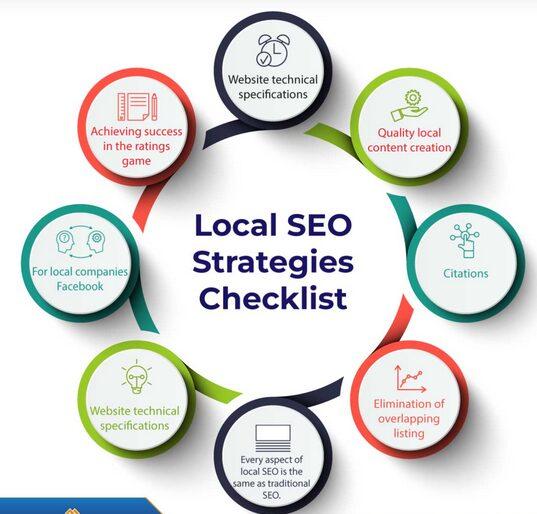As you navigate the dark web, you’ll likely stumble upon the Hidden Wiki, a mysterious platform that serves as a gateway to a vast array of .onion sites. You might be surprised to find that this crowdsourced index isn’t just a collection of links, but a reflection of the dark web’s values: freedom of information and protection of individual identity. But what drives the Hidden Wiki’s significance in dark web culture, and how does it balance the need for anonymity with the desire for community? The answer lies in its complex history and multifaceted role, which will unfold as you explore its impact.
Origins of the Hidden Wiki
You’ll find the origins of the Hidden Wiki in the depths of the dark web, where it was born out of the need for a centralized index of .onion sites. This concept emerged as users struggled to navigate the vast and unorganized network.
The Hidden Wiki was initially hosted on Freedom Hosting, a popular dark web platform that provided hosting services for .onion sites.
As the dark web grew, so did the need for a reliable and comprehensive index. The Hidden Wiki filled this gap, providing users with a categorized list of .onion sites, including marketplaces, forums, and file-sharing platforms.
The wiki’s early success was largely due to its crowdsourced nature, allowing users to contribute and maintain the index. This collaborative approach helped the Hidden Wiki stay up-to-date and accurate, making it an essential resource for dark web users.
The Hidden Wiki’s origins are closely tied to the evolution of the dark web itself. As the network expanded, the wiki adapted, incorporating new features and improving its usability.
Today, the Hidden Wiki remains a vital part of the dark web ecosystem, serving as a gateway to the network’s vast array of hidden sites and services.
Dark Web Culture and Anonymity
The Hidden Wiki has consistently been intertwined with the dark web’s culture of anonymity, often serving as a reflection of the network’s values and priorities. As you delve deeper into the world of the dark web, you’ll notice that anonymity is the top priority for its users. The Hidden Wiki is no exception, with its users valuing their anonymity above all else.
You’ll find that the dark web’s culture is deeply rooted in the idea of freedom of information Deep web search engines the protection of individual identity.
The Hidden Wiki, as a gateway to the dark web, has enabled users to access information and connect with others while maintaining their anonymity. This has created a sense of community among users, who are united by their desire for privacy and freedom.
As you explore the dark web, you’ll see that the Hidden Wiki plays a significant role in facilitating this culture of anonymity, allowing users to express themselves freely without fear of retribution or judgment.
The Hidden Wiki’s Role in Whistleblowing
As the dark web’s veil of anonymity lifts, it reveals a powerful tool for whistleblowers: the Hidden Wiki. You’ll find that this platform plays a significant role in facilitating the sharing of sensitive information and supporting those who dare to speak out against corruption, abuse of power, and injustice.
By providing a secure and anonymous environment, the Hidden Wiki empowers whistleblowers to expose the truth without fear of retribution.
You can think of the Hidden Wiki as a launchpad for whistleblowers. It connects them with like-minded individuals, investigative journalists, and organizations dedicated to transparency and accountability.
The platform’s vast network and resources enable whistleblowers to verify the authenticity of their claims, gather evidence, and build a case against those who’ve committed wrongdoing.
By doing so, the Hidden Wiki has become an essential component in the fight against corruption and oppression, allowing whistleblowers to bring about positive change from the shadows.
This powerful tool has been instrumental in uncovering numerous high-profile cases, bringing justice to those who’ve been wronged.
Controversy and Criticism Surrounding
While the Hidden Wiki‘s role in whistleblowing has brought about significant positive change, controversy and criticism surround its existence. You might be surprised to learn that many critics view the Hidden Wiki as a platform that enables and facilitates illicit activities.
Some argue that it provides a gateway to the dark web, allowing users to access illegal marketplaces, child exploitation content, and other nefarious resources.
You may also be concerned about the lack of accountability on the Hidden Wiki. Since it’s an anonymous platform, users can post and access content without fear of retribution or consequence.
This lack of oversight has led to instances of harassment, doxing, and other malicious behavior. Furthermore, the Hidden Wiki’s lack of moderation means that users may stumble upon disturbing or explicit content without warning.
You might wonder why the Hidden Wiki doesn’t take steps to address these concerns. The answer lies in its decentralized nature, which makes it difficult to implement effective moderation or regulation.
As a result, the Hidden Wiki remains a contentious topic, with many questioning its value and purpose.
Free Speech in the Dark Web
Entering the dark web, you’re likely to encounter a complex web of conflicting values and ideologies that challenge traditional notions of free speech.
As you navigate this uncharted territory, it’s essential to understand the role of free speech in the dark web culture. The dark web prides itself on being a bastion of free speech, where individuals can express themselves without fear of censorship or retribution.
However, this freedom comes with a cost, as it also enables the dissemination of harmful and illicit content.
Here are three key aspects of free speech in the dark web:
- Unfettered expression: The dark web allows individuals to express themselves freely, without the constraints of traditional social media platforms.
- Anonymity: The dark web’s emphasis on anonymity enables individuals to speak their minds without fear of reprisal or social consequences.
- Lack of regulation: The dark web’s lack of regulation means that there are no centralized authorities to enforce rules or guidelines on free speech.
As you delve deeper into the dark web, it’s crucial to recognize the complexities of free speech in this environment. While it can be a powerful tool for self-expression, it also poses significant risks and challenges.
Conclusion
You’ve now seen the Hidden Wiki‘s multifaceted role in dark web culture. It’s a symbol of freedom of information and protection of individual identity, allowing users to express themselves freely and access information without fear of retribution. As you navigate the Hidden Wiki, you’re part of a community that values anonymity and crowdsourced knowledge. This platform’s impact on dark web culture is undeniable, shaping the way users interact and share information online.




